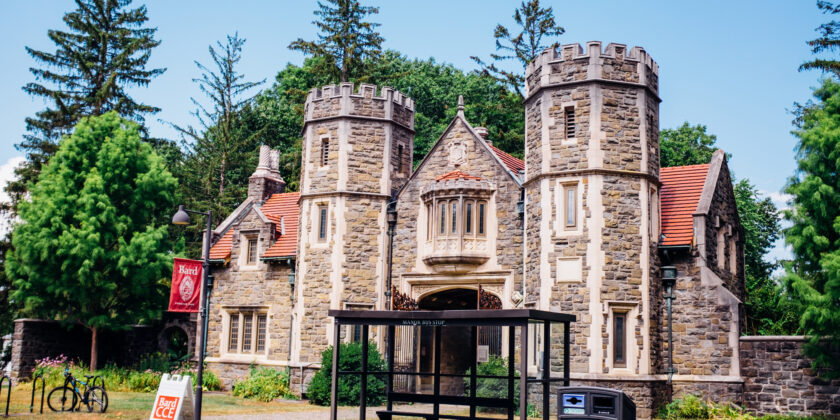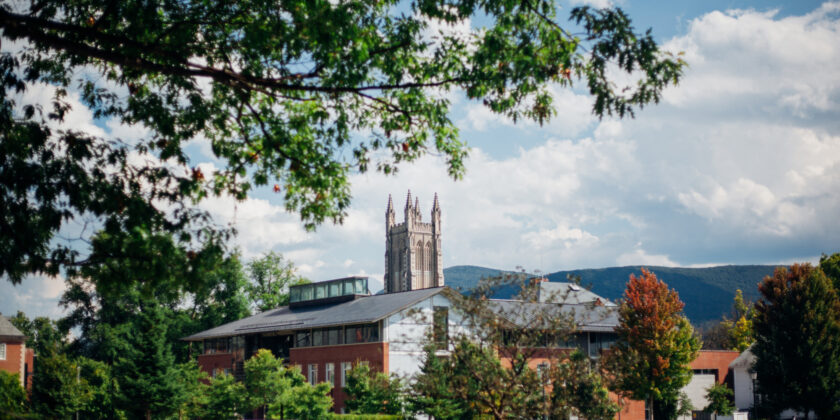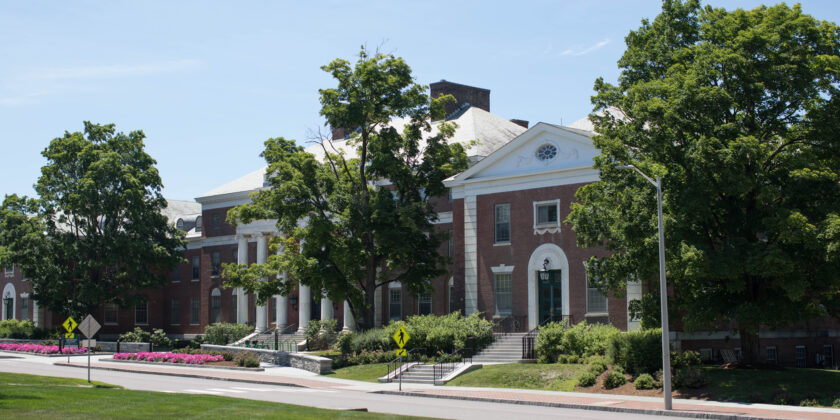Resume Magic
Yale podcast/blog: https://admissio
Michigan’s application instructions: http
Princeton’s helpful tips: https://admissio

Yale podcast/blog: https://admissio
Michigan’s application instructions: http
Princeton’s helpful tips: https://admissio

If you are a junior or sophomore and are looking to secure an internship it can help to get on LinkedIn. It’s one of the most convenient places to connect with potential employers, request informational interviews, and learn about the paths people have taken toward your dream role. There are many ways to get from high school to [insert dream role here]. It’s also faster than email in some cases!
It’s not hard to build a profile, and LinkedIn has published a guide just for high school students. You can access it here.
Some colleges also have a spot on their application to add a profile link; often, the more you can share about your interests, accomplishments, and goals, the better!
*Stay in the know! Subscribe*

Summer is the perfect time to explore your academic interests. As part of your college application, activities that help demonstrate your intellectual curiosity and commitment to an area of study (typically, the one(s) you might pursue in college) are extremely beneficial.
The following programs are some of our favorites for students interested in government, politics, law and IR.
Volunteer/Internship Opportunities:
The Benjamin Franklin Transatlantic Fellowship fosters relationships among the younger generation of Europeans and Americans to build strong linkages and an awareness of shared values. The Fellowship engages 45 teenagers from Europe and ten American teenagers (ages 16 – 18) in a four-week U.S.-based exchange program that aims to reinforce the transatlantic relationship. During the Fellowship, participants will explore transatlantic relations, leadership development, critical thinking, diplomacy, community activism, and the media in order to unite young adults around common goals, using the legacy of Benjamin Franklin as a framework. American youth are eligible to participate in the fellowship, but do not travel abroad. This fellowship is funded.
The United Nations Association of Greater Boston’s Summer Institute in Global Leadership offers week-long Model UN programs for students from all over the world to work together and address global issues. Learn about global issues, build skills for life and leadership, and collaborate with students from across the world during our week-long Model UN programs! In-person and virtual options.
The New York University High School Law Institute (HSLI is an Academic Year Program*) is a student-run organization that serves talented and motivated high school students throughout New York City. Alongside a sister program at Columbia Law School, they offer free, yearlong academic programming in constitutional law, criminal law, and speech and debate on Saturdays from 10 AM to 1 PM. Ideal HSLI students are those who recognize the impact of the legal system, wish to learn more about how it concretely impacts society, and are preparing themselves to serve and advocate for others.
The U.S. Department of State’s National Security Language Initiative for Youth (NSLI-Y) program provides critical language study overseas for U.S. high school students through full scholarships to participate in intensive summer and academic year programs. Participants study one of the eight NSLI-Y languages while immersed in the culture and day-to-day life of the host country. NSLI-Y is part of the National Security Language Initiative, a multi-agency U.S. government initiative launched in 2006 to improve Americans’ ability to engage with people from around the world. NSLI-Y plays an important role in preparing U.S. students for the 21st century’s globalized workforce and contributes to national security. NSLI-Y participants serve as citizen ambassadors, representing the diversity of the United States abroad and building lasting relationships with people in their host countries. If you have a passion for learning languages and want to immerse yourself in a foreign culture, this program may be for you! No previous language skills are required. NSLI-Y languages: Arabic, Chinese (Mandarin), Hindi, Indonesian, Korean, Persian (Tajiki), Russian, Turkish.
Onero Institute Virtual Teams. The Onero Institute produces high-level content on international affairs topics in new and creative ways. They develop projects specially designed for social media platforms to better engage young people on global issues and to bring credible content to an increasingly important space. Join the Virtual Engagement Team to take part in this unique area of today’s international discourse. If you would like to join but need more experience developing such projects, participate in the Virtual Engagement Program (VEP) to build up your skills in graphic design, concise writing, teamwork, and research.
The Edward M. Kennedy Institute for the United States Senate is dedicated to educating the public about the important role of the Senate in our government, encouraging participatory democracy, invigorating civil discourse, and inspiring the next generation of citizens and leaders to engage in the civic life of their communities. They offer ongoing volunteer roles and “internships” where students can help enhance the visitor experience and communicate the Institute’s mission.
Contact your senator’s office for more information on applying to be a Senate Page.
For Rising 9th Graders
The Summer Law Institute (SLI) is a five-week, summer law program for students who have just completed their eighth grade school year. The Summer Law Institute pushes rising ninth graders to see themselves as young professionals-in-training. The program exposes them to positive and successful role models, involves them in professional activities, and places them on a path that can lead to the fulfillment of their dreams. Students who complete the SLI are eligible to apply to our 4-year College Bound program.
*Stay in the know! Subscribe*

As part of your college application, extracurricular activities—including those over the summer— help demonstrate your intellectual curiosity and commitment to an area of study (typically, the one you might pursue in college).
But “programs” are not the only way to explore academic interests. You can join clubs at your school or locally, take free online classes via edX and Coursera, shadow, or intern (aka volunteer for most students)—there are tons of options ranging from super formal (and pricey) to those as simple as reading in your free time.
The following programs are some of our favorites for students interested in exploring social justice and activism.
Pen American Free Speech Advocacy Institute (Spring too!!!). PEN America’s Free Speech Advocacy Institute is a 15-week online education and training program that will provide students with a foundational understanding of free expression as a civil right and an ongoing contemporary topic of social and political conversation. Students will be introduced to a broad range of issues related to free expression at both the domestic and international levels, covering the First Amendment and free expression limitations established by the Supreme Court, as well as the history of free expression as a human right, and other modern issues related to the Internet, protest, political dissent, hate, and freedom of the press.
The ACLU National Advocacy Institute’s High School Program will convene a virtual gathering of high school students (ages 15-18) from across the United States to participate in a week-long learning experience for the next generation of social justice advocates.
The NYCLU has prioritized youth activism for more than 20 years. They work with youth organizers across New York State to ensure that young people know their rights, know how to access those rights and learn how to effectively organize around civil rights and civil liberties in their schools and communities. They are eager to organize alongside youth activists, educators and parents alike to effect change in New York. Check out these projects: Teen Activist Project & Student Ambassadors.
FFAC National High School Mentorship. Are you a high school student interested in working to create a more just and sustainable food system? Are you looking for a deeper understanding of social issues and your place as an advocate in the movement? Would you like to be part of a supportive community of like-minded changemakers? If so, consider applying to Factory Farming Awareness Coalition’s Student Advocates program.
Religious Action Center Teen Justice Fellowship. RAC teen fellowship programs are learning intensives in community organizing, designed to equip our youth leaders with the skills to create change in their home communities. Through fellowships, high schoolers connect with other social justice leaders from across the country and learn lifelong skills applicable to any issue they are passionate about. The fellowships value experiential learning, moving beyond theory and Zoom trainings into action. Each fellowship culminates in teens designing and implementing a project in their home communities. As a fellow, you’ll learn community organizing skills, explore your own identity and what your sources of privilege and oppression are, the roots of voter suppression in America, skills to register voters, and complete a civic engagement project in your home community. You get to learn, decide how you want to make an impact, and be the leader that makes it happen.
*Stay in the know! Subscribe*

Want to solve a Google engineering challenge? Hash Code, Google’s team programming competition, is back for 2022 — register today at g.co/hashcode!
This is a wonderful opportunity for high school students interested in CS!!!
Here’s what you need to know:
Are you up for the challenge? Register today!
Make sure you don’t miss the action – register for Hash Code 2022 now. You can always check the top of the schedule page to confirm you’ve successfully registered.

COVID is still hindering in-person learning, forcing clubs to meet online (if not canceling them outright), and may even throw a wrench in in-person educational and extracurricular planning for the spring and summer. A primary focus of our work with 10th and 11th graders is extracurricular planning, and there’s one that is almost never dependent on needing to be anywhere in person: the independent study.
Independent studies (IS) can be done anywhere and work with almost any area of interest, which is why in such uncertain times, they are our go-to EC. Like the “purpose” or “passion” projects many of our students undertake, the IS is a create your own educational opportunity, so there’s no one size fits all model to follow or template you can use to just plug and play. Below are some of the details we suggest thinking through if you are interested in conceptualizing an IS.
Who
The IS requires the student to have an area of interest that they want to explore (or explore more), as well as the time, energy, and foresight to plan it on their own. However, students may want to seek out support from a teacher at their high school or a mentor from outside of school if they desire to formalize it or have some guidance or check-ins along the way.
What
Anything goes! But we suggest an area of academic interest related to what you may pursue in college. It might be a new topic, or it might be an extension of a topic you have already researched. The bottom line is, it should 1) be a topic/area you choose because you will need to be into it to make the work happen on your own and 2) if possible, it should work with your academic narrative (the academic story that unfolds in your college apps).
Where
Planning the IS as a remote activity is a good call given the uncertainties around COVID. Doing so also provides the flexibility to add on other activities/formal programming or have time for a job if that suits you while still working on the IS, as well as plan something like travel (college visits?) if that becomes reality again!
When
Winter break or early in the new year is the perfect time for students to start planning their independent study. As for an ideal start time? Many juniors are busy with testing so we suggest it as a summer activity, although students who may not have AP testing in May or who have finished or not yet started ACT/SAT testing could realistically start in the spring if their courseload allowed. The classes that appear on your transcript will always be the most important to colleges, so you don’t want your IS to get in the way of excelling in those courses.
Why
Beyond how the restrictions that might be in place around COVID make it an ideal activity, an independent study helps demonstrate to colleges your commitment to learning, your intellectual focus and curiosity, and that you are a self-directed learner interested in charting your own course and not limiting yourself to what you can take in school (or afford to take outside of it).
*Stay in the know! Subscribe*

I have been suggesting free classes via edX and Coursera for a while now. They are the perfect way for students to build their academic narrative, which is a must when applying to selective colleges. If you did not jump on this suggestion already, this summer is a great time (if you don’t have a lighter EC load right now!
Below are some of my current favorites from both platforms. Click on the course title for a direct link.
Specializations (Multiple Courses)
*Stay in the know! Subscribe*

The resumes we see tend to take two forms: the students who does it all, but nothing very deeply or well, and the students who does very little (to varying degrees of depth and rigor).
You don’t need to do it all, but you do need to do something, or a few things, really well or to an extent that goes beyond that of your peers. And if you can’t help but spread yourself a bit thin, you can still craft a narrow application (ask us how!).
Colleges look for students with something unique, a specific talent, skill, or interest to add to their next class. Students who drill down on an interest or two early on in high school will be better positioned to tell a clear, focused story in their applications. By doing so, they hand the reader of their file exactly what they are looking for—they make it easy to see the value you will add on campus.
This might mean doing a lot of exploration early in high school and this is okay. However, don’t be afraid to find something you like, drill down on it, and not do too much else extracurricularly. You don’t want a resume that reads like a laundry list anyway.
Here’s what a few top colleges have to say on the subject via Niche:
The question I ask a lot when thinking about activities: How much can you meaningfully contribute to more than a few activities? Narrowing down your interests and corresponding activities can provide the time and space needed to engage more meaningfully and at a higher level in the one or two things you love the most. It’s a bonus if these activities relate to your potential college major, or support it in some way!
Remember, colleges seek to build a well-rounded class comprised of students with unique talents and skills, not a class full of generalists.
*Stay in the know! Subscribe*